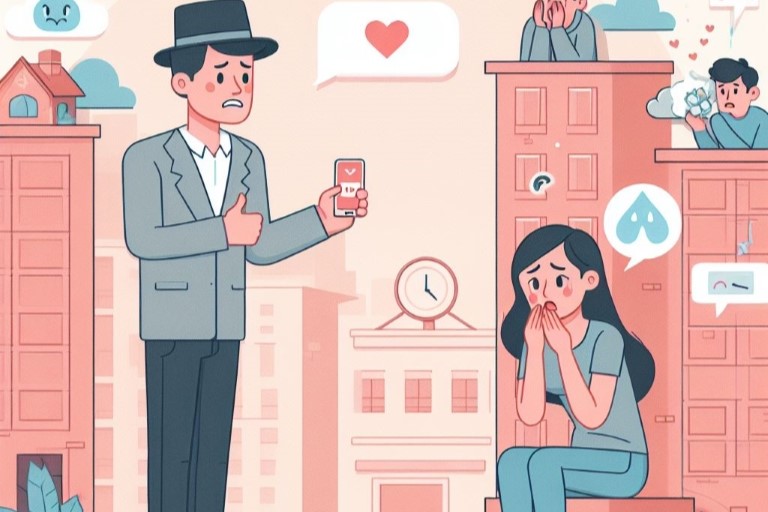Signs of Anxious Attachment in Dating

1. Overthinking and Constant Worry
Do you find your mind constantly racing, dissecting every word and action in your relationship? Overthinking is a common trait of anxious attachment, causing a whirlwind of worry about the stability of your connection.
2. Seeking Reassurance
Are you often seeking reassurance from your partner to ease your fears? Anxious individuals yearn for constant validation, a lifeline that temporarily calms the storm of abandonment fears. It’s a natural response, but understanding its impact is crucial.
3. Fear of Abandonment
Does the thought of being abandoned strike fear in your heart? Anxious attachment brings with it a deep-seated fear of abandonment, shaping behaviors and responses in an attempt to prevent the perceived threat. Recognizing this fear is the first step towards building a more secure foundation.
Impact on Communication and Trust

1. Communication Challenges
Do you find expressing your needs in a relationship challenging? Anxious attachment can introduce communication hurdles, with individuals often fearing that vocalizing their desires might push their partner away. It’s crucial to recognize these challenges and actively work towards fostering open dialogue.
2. Trust Issues
Does trust feel fragile in your relationships? Anxious attachment may contribute to trust issues, stemming from the deep-seated fear of abandonment. Building and maintaining trust requires intentional effort and patience. Recognize that trust is a journey, not an instantaneous destination.
Dating with Anxious Attachment

1. Building Secure Attachments
Self-Reflection: Take moments to understand your attachment style. Reflect on how past experiences might be influencing your present interactions. This self-awareness is a cornerstone in building a more secure attachment.
Open Communication: Foster a culture of open communication with your partner. Share your feelings and fears, allowing them insight into your emotional world. A partner who understands can be a powerful ally in this journey.
2. Managing Anxiety in Relationships
Mindfulness Practices: Integrate mindfulness into your daily routine. Whether it’s meditation or deep breathing exercises, these practices can help you manage anxiety and stay grounded in the present moment.
Self-Care: Prioritize self-care as a fundamental aspect of your emotional well-being. Acknowledge that taking care of yourself is not selfish but an essential step towards building resilience in relationships.
Professional Guidance on Anxious Attachment Dating

1. Therapeutic Approaches
Consider individual therapy to explore and address underlying attachment issues. A qualified therapist can provide personalized strategies to enhance your emotional well-being. Additionally, couples counseling can strengthen communication skills and build a secure foundation for the relationship.
2. Expert Opinions
Seek insights from relationship experts who specialize in attachment styles. Reading expert opinions can offer valuable perspectives on healthy dating practices and provide additional tools for navigating relationships with anxious attachment.
Expert Opinions: Insights from Relationship Experts

1. Recognizing Patterns
According to experts, recognizing patterns is a crucial step. Identifying recurring behaviors linked to anxious attachment allows individuals to address them consciously. This awareness can pave the way for healthier relationship dynamics.
2. Communication Strategies
Experts emphasize the significance of communication in managing anxious attachment. Developing clear and open communication strategies with your partner can bridge gaps and build trust. This involves expressing your needs while actively listening to your partner’s perspective.
3. Building Emotional Resilience
Building emotional resilience is a key aspect highlighted by experts. Focusing on self-care, mindfulness, and personal growth can contribute to a more secure attachment, reducing the impact of anxious thoughts and fears in dating scenarios.
